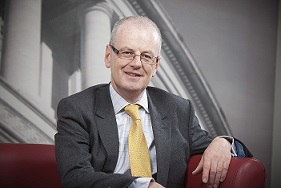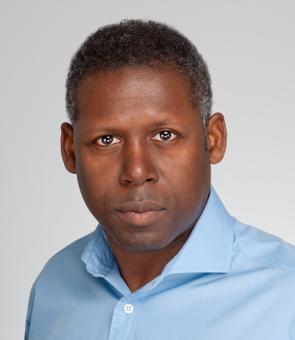Alan Collins, partner and abuse case specialist, Pannone Solicitors...
 It seems like the media has been full of stories on high profile abuse cases for the last year now and you have been extensively quoted. How do you cope with media pressure?
It seems like the media has been full of stories on high profile abuse cases for the last year now and you have been extensively quoted. How do you cope with media pressure?
Fortunately I have an excellent press office which ensures that I am set up for the right interview at the right time. The media understand the pressure only too well and that creates its own intense dynamic. There does though come a time when you have to be firm and say ‘no’ to media requests if they begin to impinge on client service requirements.
Do you find the media sympathetic towards abuse victims?
The media is of course interested in reporting the brutal facts and looking for new angles, but on the whole the victims' feelings and opinions are respected. A very constructive dialogue can take place with experienced support resulting in very positive coverage for victims.
In dealing with so many high profile abuse cases, do you see any common threads appearing in how the abusers used their status to abuse?
Abusers using their positions of power to abuse. The saying, ‘Power corrupts and absolute power corrupts absolutely’ has some truth in it. Those who abuse, whether it is a Savile, Hall or as we have seen on many occasions, a priest, often use their power to abuse.
Much has been said about the recent increase in Stuart Hall’s sentence; where do you stand on this issue?
It was interesting to observe how the court of appeal approached the case which so far is unique. The victims were pleased to be vindicated. That for them was the most important aspect. My own position is that sentences should be made retrospective.
The high profile cases grab media attention, but are you seeing more people to come forward with allegations of abuse by people in the mainstream of society?
The "celebrity" cases have given other victims the courage to come forward and speak of their experiences. For every high profile ‘showbiz’ abuse allegation we are dealing with, we have a dozen others from other sources in mainstream society. Workplace abuse is more common than we would like to think it is.
Some people have voiced the opinion that sexual abuse in the 1960’s, 70’s and even 80’s was somehow more acceptable because, ‘times were different’.
Do you have any sympathy with that point of view?
Times were of course different but sexual abuse of children was a crime then as it is now. Inappropriate behaviour was unacceptable then and as it is now. The difference is that victims are now empowered to complain whereas in the past they were not.
That question leads us in to the thinking that perhaps sexual abuse is a thing of the past and can’t happen in these more 'enlightened times’. Is that the case?
Experience and recent and tragic cases point to sexual abuse as being an on-going problem that is not on the wane. I am afraid there might be a backlash against victims coming forward and the comments of a barrister in a recent court case labelling a 13 year old girl as “predatory” are at the very least hard to understand.
What would you say to any individual who has suffered abuse, sexual or physical either recently or in the past?
You are not alone and support is there for you. Abuse allegations are taken very seriously now and the authorities are sympathetic to those who come forward. Contact the police who now have specialist officers to assist you. Seek advice from your GP or one of the many support groups and of course, take legal advice from a specialist solicitor.








